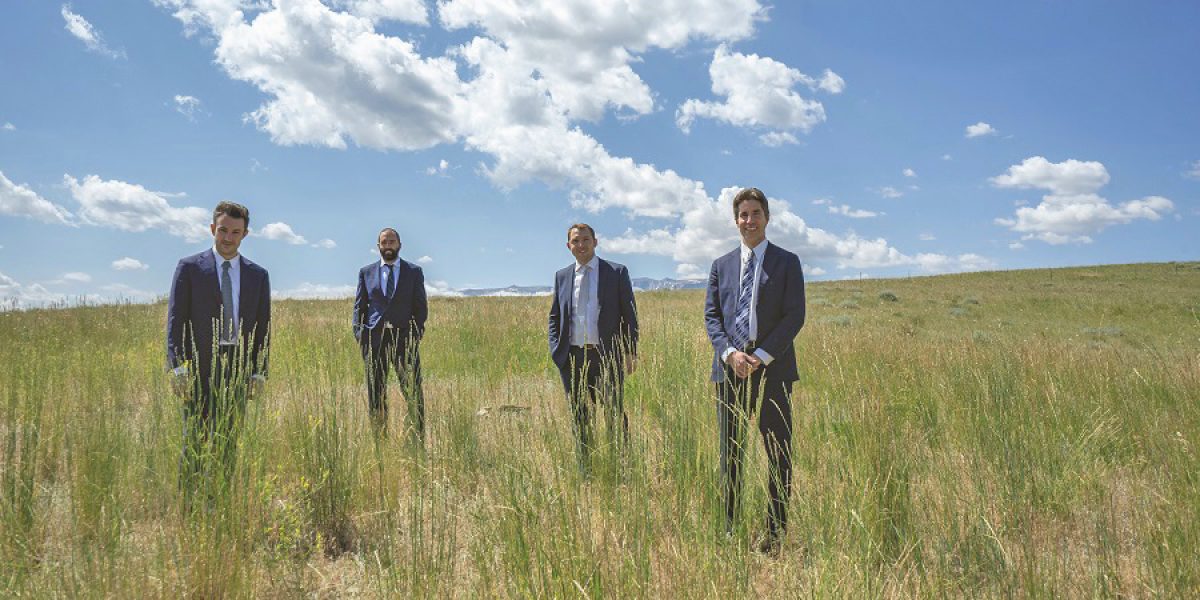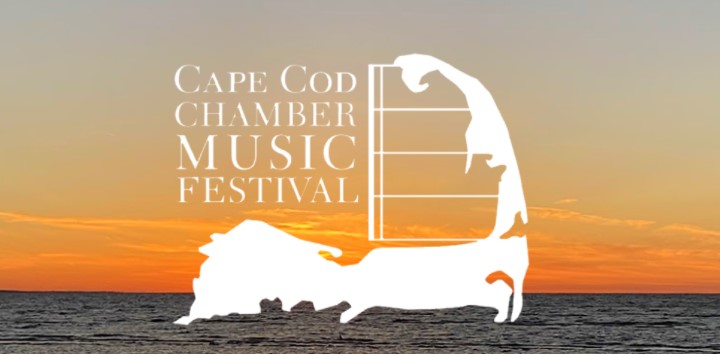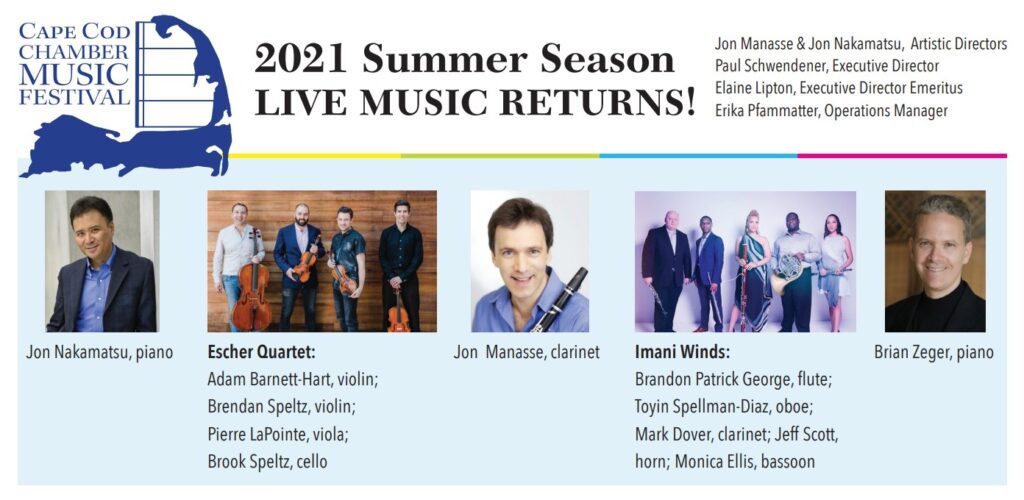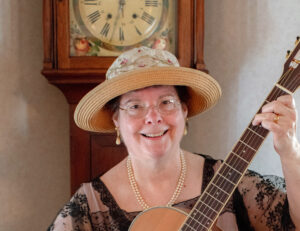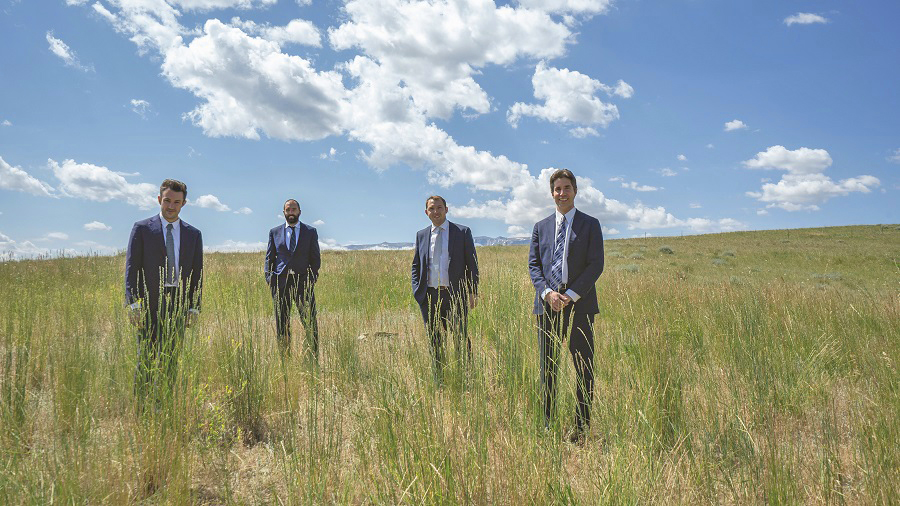
cellist Brook Speltz, and violist Pierre Lapointe. (Photo Emily Rund)
The Escher Quartet expertly plays Schumann and Coleridge-Taylor
THE PROVINCETOWN INDEPENDENT – I’ve listened to the dirge-like second movement of Robert Schumann’s piano quintet in E-flat major — specifically, as played by the Beaux Arts Trio in their 1976 recording — so many times that it has become ingrained, like a route that I could walk in my sleep. When I imagine the first movement’s yearning theme, I can’t help but hear Bernard Greenhouse’s distinctive tone.
Last Friday’s performance of that piece by the Escher String Quartet, joined by pianist Jon Nakamatsu, at the First Congregational Church in Wellfleet had echoes of that recording. (It’s fitting, as Greenhouse lived in Wellfleet, and used to perform with the Cape Cod Chamber Music Festival.) The piece was perfect for closing the program, considering the past year and a half. It is full of raw emotion, pent-up energy, and release.
The Cape Cod Chamber Music Festival was virtual last summer. At Friday’s concert, there was a collective sense of joy to be back to live music. People chattered excitedly beforehand. A few stragglers clapped between movements — concert etiquette, like any other social skill, gets rusty from disuse.
But there was also a sense of melancholy, perhaps brought on by the Delta variant. I attended the second of two reduced-capacity performances at 5 and 7:30 p.m., figuring the musicians would be fully warmed up. Compared to past festivals, the pews felt empty; the applause was perhaps slightly less uproarious, but still appreciative.
The program opened with Samuel Coleridge-Taylor’s quintet in F-sharp minor for clarinet and strings. For this piece, the Escher was joined by clarinetist Jon Manasse. Coleridge-Taylor was a turn-of-the-20th-century Afro-English composer influenced by “big R” Romantic composers such as Brahms, Dvořák, and Grieg, as well as by African American music.
In the allegro energico first movement, Manasse’s tone was like warm caramel. This was offset by the plump, juicy pizzicato of cellist Brook Speltz. The larghetto affettuoso second movement seemed to start spontaneously, with the high strings (violinist Adam Barnett-Hart, violinist Brendan Speltz, and violist Pierre Lapointe) entering like a ray of light. The melody — first in the clarinet, later in the cello — is undeniably comforting. The whole piece has a cinematic quality — this movement especially so.
The slippery scherzo third movement was also expertly played — some dynamic contrasts actually made me jump. The allegro agitato fourth movement’s toe-tapping theme begins in the clarinet and is spun out by the frenzied other instruments. The tension builds to an abrupt silence (the classical equivalent of a beat drop). When the musicians re-enter, the sound is hesitant and dissonant, but not for long. Their accelerando comes to an absolutely nutso ending, bows flying in the air.
Indeed, this piece really excels in the endings of movements: the first movement ends with a plucky exclamation; the second with a sigh; the third with a joking shrug; the fourth with fireworks.
The Schumann piano quintet that followed in the second half, however, was the highlight of the program. The allegro brilliante first movement has a lot of “hurry up and wait.” Pianist Nakamatsu expertly stretches and compresses time like saltwater taffy. When cellist Speltz gets the theme, which begins with a fifth leap, he resists the temptation for schmaltz. His slides are understated.
In the marcia second movement, the somber initial theme is passed around like a glass of whiskey at a funeral. When it reached violist Lapointe, his sound was perfectly gravelly — evoking a shovel hacking at the hard earth. The secondary theme was played so beautifully as to draw tears.
There was a small mishap at the beginning of the scherzo third movement. Nakamatsu started playing, but violinists Barnett-Hart and Speltz weren’t ready. The look of panic on their faces lasted mere seconds; they recovered quickly. The finale was played with a great deal of foot stomping and masculine energy. The movement culminates in a fugue — in the final bars, one could actually hear the wood of cellist Speltz’s bow hitting the strings like punctuation.
The Chamber Music Festival continues this Thursday and Friday in Eastham and Wellfleet (see box, this page).
Preview: Major Key
The event: “A Woman’s Perspective” with Imani Winds, part of the Cape Cod Chamber Music Festival
The time: Friday, Aug. 13 at 5 and 7:30 p.m.; there is also a free family concert at the Salt Pond Visitor’s Center in Eastham on Thursday, Aug. 12, 5 p.m.
The place: First Congregational Church, 200 Main St., Wellfleet
The cost: $40 adults, $15 students

